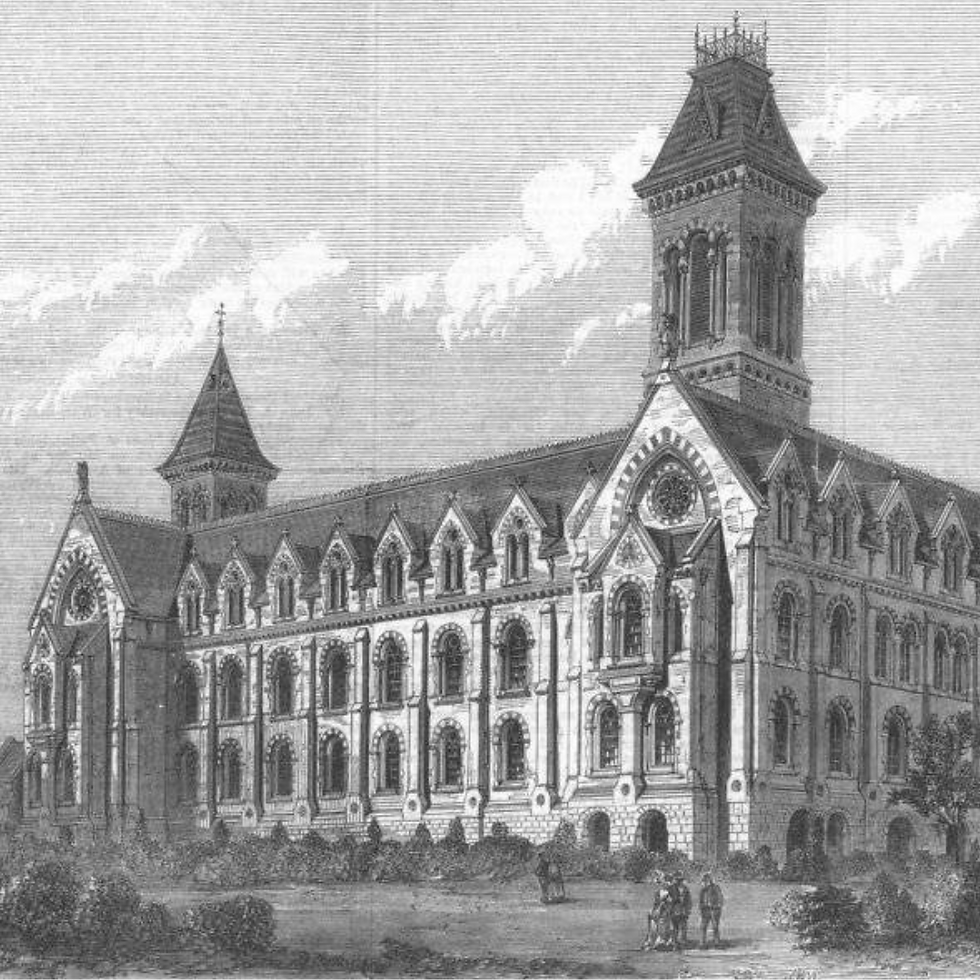Founder's Day 2025
- Admin
- Jul 29, 2025
- 3 min read
Today, we’re celebrating the founding of the Sir Josiah Mason Trust (SJMT) on this day in 1868 and Sir Josiah’s extraordinary rags-to-riches story.

Josiah as a child
Born in Kidderminster on 23 February 1795, Josiah was the son of a carpet weaver. The first of his noted extraordinary achievements was teaching himself to write as a child.
Aged just eight years, he began selling food as a street hawker. As he grew older, he tried his hand at various trades such as shoemaking, baking and carpentry.
Finding his fortune in Birmingham
Josiah moved to Birmingham in 1816. Eight years later, in 1824, he invested his savings in a business.
The business manufactured split rings, and Josiah saw an opportunity to improve the machinery to produce bevelled rings, a design still seen in our modern-day keyrings.
Josiah’s entrepreneurial career continued and, using his self-taught engineering skills and business acumen, he went on to become the biggest manufacturer of mass-produced pens and nibs in England. He was also instrumental in revolutionising electro-nickel plating, copper smelting and rubber ring making.
Josiah’s philanthropy
Although Josiah amassed a considerable fortune, he didn’t forget the deep-rooted values of kindness and generosity he gained as a child.
He endowed most of his wealth to good causes, firstly in 1858 by building almshouses on Station Road in Erdington.
The building housed 30 spinsters and widows aged over 50 years, and 20 orphan girls. The orphans were given a basic education and were taught domestic skills such as baking and sewing.

Shortly after founding our Trust, he opened a large orphanage costing £60,000 in Bell Lane in Erdington, with land and estates estimated at £200,000. Josiah laid the foundation stone for the orphanage personally and privately, modestly wishing for no ceremony.
Now called Orphanage Road, the long-since-demolished building included rooms for 26 women, dorms for 300 children and a school which gained a reputation for being one of the best community schools in the area.
A new wing was later added, which allowed space for a new schoolroom and housing for an additional 200 children.
A bust of Sir Josiah sits proudly on the Orphanage Road roundabout.
Josiah's good work continued
Josiah went on to become one of the most highly esteemed industrialists and philanthropists of his time. He was knighted in November 1872.

He built Mason Science College in 1880, which was incorporated into the University of Birmingham in 1900.
Neville Chamberlain, former UK Prime Minister, was one of several notable students who studied there.
A version of the mermaid which featured on Sir Josiah’s original Trust logo can still be seen on the University’s logo today.
Sir Josiah's death in 1881
Sir Josiah died on 16 June 1881, aged 86. He was buried in a mausoleum in the grounds of the orphanage along with his wife Annie (who died in 1870, aged 78) and 53 children who died at the orphanage.
Their remains were disinterred and their ashes scattered in the Garden of Rest at Perry Barr Crematorium when the orphanage was demolished in the 1960s. The Trust retained part of the site and the 36 almshouses which had been built there in the 1920. These are now called Mason Cottages.
Almshouses were also built in Olton in the 1960s and Shirley in 1974.
SJMT today
We specialise in providing housing and extra care for older people aged over 55, with schemes in Shirley, Olton, Erdington, Wolverhampton, Kidderminster and Bournville.
We also have a small number of properties we let as private rentals.
Our Shine project encompasses Sir Josiah’s vision of supporting young people, creating brighter futures for those who have experienced care and are aged 16 to 25.
Last year, we announced that we had been granted planning permission to build our first almshouses for young people since Sir Josiah built the Station Road site in 1858.















Comments